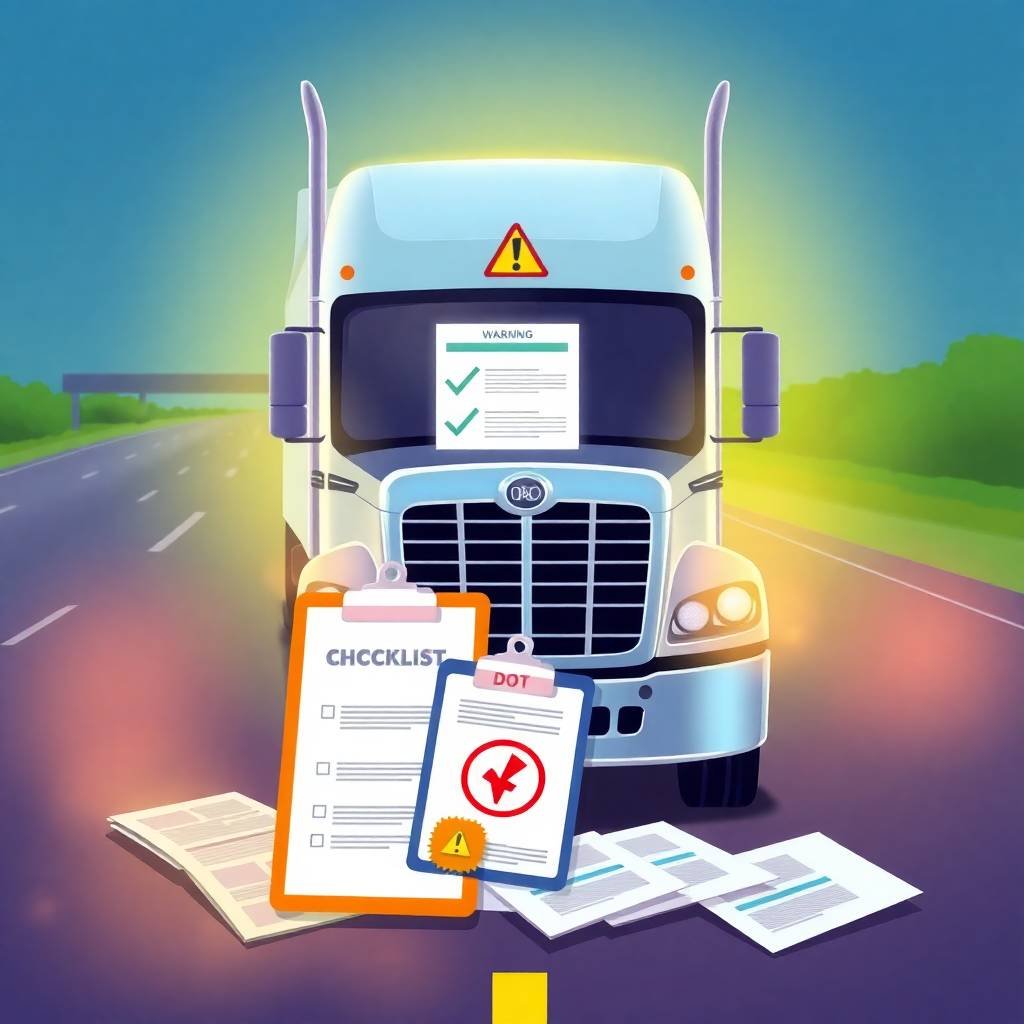IFTA IRP BOC 3 Support: 7 Proven Ways to Avoid Costly Filing Mistakes in 2025
Filing for IFTA, IRP, and BOC-3 isn’t just paperwork—it’s a legal necessity that, when mishandled, can jeopardize your operating authority. With evolving FMCSA guidelines and stricter enforcement in 2025, getting proper IFTA IRP BOC 3 Support is critical for every owner-operator and small fleet. This guide offers seven proven ways to sidestep filing errors that could result in fines, suspensions, or delays.
1. Understand What Each Filing Really Means
Navigating trucking compliance can be overwhelming, especially when terms like IFTA, IRP, and BOC-3 are used interchangeably. But each serves a distinct regulatory purpose, and understanding their roles is critical to maintaining your authority. That’s where IFTA IRP BOC 3 Support becomes essential.
The International Fuel Tax Agreement (IFTA) ensures you pay fuel taxes fairly across jurisdictions. The International Registration Plan (IRP) distributes registration fees based on mileage in participating states. Meanwhile, the BOC-3 form designates a legal agent in each state for service of process—mandatory for all FMCSA-authorized carriers.
Neglecting to differentiate these filings can lead to duplicate charges, missed deadlines, or suspended authority. Our comprehensive FMCSA Compliance Requirements for Trucking Companies guide breaks down how they interconnect. For fuel tax specifics, the official IFTA website offers authoritative clarity. IRP information is also available via AAMVA’s IRP resource.
With tailored IFTA IRP BOC 3 Support, we help you manage filings correctly the first time. Book your compliance consultation today to avoid costly errors. For more insights, explore our DOT Compliance Checklist for Owner-Operators.
2. Don’t Miss Renewal Deadlines
Missing even one renewal deadline can shut down your operations, cost you thousands in penalties, and leave your DOT number inactive. That’s why staying ahead with proper IFTA IRP BOC 3 Support is not optional—it’s essential for running a compliant trucking business in 2025.
IFTA fuel tax renewals, IRP plate registrations, and BOC-3 agent filings all come with strict renewal cycles. Overlooking any of them can trigger enforcement actions or delays in interstate authority. Our UCR Filing Deadlines page outlines annual deadlines to help you stay on track. For official guidance, visit the FMCSA Registration Portal or U.S. DOT compliance resource hub.
If managing multiple renewal cycles feels overwhelming, expert IFTA IRP BOC 3 Support ensures nothing slips through the cracks. We align your filings with FMCSA Compliance Requirements for Trucking Companies and maintain your active operating status year-round.
Avoid costly lapses in authority. Schedule your personalized compliance appointment and receive a tailored checklist aligned with your renewal needs. You’ve worked hard to build your business—don’t let missed deadlines put it at risk.
3. Use the Correct Jurisdictional Data
Using inaccurate jurisdictional data in your fuel tax or apportioned plate filings can lead to serious consequences, including audit triggers, delayed processing, or penalties. That’s why professional IFTA IRP BOC 3 Support is crucial for ensuring your miles and fuel use are accurately tracked across every state and province you operate in.
Each jurisdiction enforces its own reporting thresholds, rate structures, and submission requirements. Errors in one state—such as misreporting distance for IFTA or failing to assign the correct base jurisdiction for IRP—can affect your standing nationwide. For foundational compliance knowledge, see our DOT Compliance Checklist for Owner-Operators and Driver Qualification File Requirements. You should also refer to official guidelines from the International Fuel Tax Association and the Federal Motor Carrier Safety Administration.
Our expert IFTA IRP BOC 3 Support helps ensure your filings reflect precise jurisdictional data, including distance calculations, fuel use, and legal agent designations. Book a compliance consultation now to avoid reporting errors and stay audit-ready. Don’t let data mistakes compromise your operations in 2025—our team ensures every detail matches federal and state regulations.
4. Verify Your Process Agent Information
Incorrect or outdated process agent information on your BOC-3 filing can lead to missed legal notices, compliance violations, or even revoked operating authority. For 2025, staying current with your filings is non-negotiable—especially with increased FMCSA oversight. The right IFTA IRP BOC 3 Support ensures your designated agents are accurate and your business remains legally protected.
BOC-3 filings require every motor carrier to designate a process agent in each state where they operate. If an address is outdated, or if the agent is unresponsive, you risk serious delays in resolving claims or receiving notifications from the Federal Motor Carrier Safety Administration. Visit the Unified Registration System to double-check your current designations.
At Truckers Compliance Hub, we provide full IFTA IRP BOC 3 Support, ensuring your agent records are updated, compliant, and consistent across jurisdictions. Explore our FMCSA Compliance Requirements for Trucking Companies and How to Prepare for a Compliance Review to stay ahead.
Don’t risk rejection or penalties—book your compliance session today to verify your BOC-3 and stay legally protected in every state where you operate.
5. Centralize Document Storage
Disorganized paperwork is one of the top reasons small carriers fall behind on compliance. In 2025, digital centralization is no longer optional—it’s essential. Efficient IFTA IRP BOC 3 Support starts with a document storage system that’s secure, accessible, and audit-ready at all times.
Each filing—from IFTA quarterly fuel tax reports to IRP registration and BOC-3 agent records—has specific retention requirements. Losing even one document can delay renewals or result in compliance penalties. FMCSA’s recordkeeping guidelines require that you retain driver logs, mileage records, and tax documentation for years. Without centralized storage, retrieval during a DOT audit becomes risky.
We recommend organizing everything using cloud-based systems with permission-based access. Our DOT Compliance Checklist for Owner-Operators and Driver Qualification File Requirements posts explain what documents you must keep and for how long.
Get comprehensive IFTA IRP BOC 3 Support that includes digital document management, real-time access, and built-in audit prep. Schedule your compliance session to get your files under control. Stay protected, save time, and meet all DOT and FMCSA requirements with confidence.
6. Automate Mileage and Fuel Tracking
Manual tracking of fuel and mileage is outdated—and dangerous when it comes to FMCSA audits. In 2025, automation is key to staying ahead. Owner-operators who want to simplify compliance and reduce audit risk must invest in tools that offer real-time, automated data capture. This is where IFTA IRP BOC 3 Support becomes a game-changer.
Accurate fuel purchase logs and state-by-state mileage records are essential for IFTA filings. When these are manually compiled, the chances of error—and fines—increase dramatically. FMCSA guidelines stress the importance of accuracy in operational records. Pairing GPS-enabled ELDs with fuel card integrations creates a digital paper trail that streamlines your IFTA IRP BOC 3 Support process from end to end.
Our guide on How to Prepare for a Compliance Review and the DOT Compliance Checklist for Owner-Operators provide detailed instructions on how automation protects your operations.
Need help implementing the right tools? Book your compliance consultation to optimize your recordkeeping strategy. Automated tracking not only improves accuracy but ensures you stay aligned with DOT and FMCSA standards, year-round.
7. Schedule Regular Compliance Reviews
FMCSA regulations change often—and staying up to date is not optional for carriers. Scheduling regular compliance reviews is one of the smartest ways to protect your operating authority, prevent fines, and ensure your filings are always accurate. With the right IFTA IRP BOC 3 Support, small trucking companies and owner-operators can transform this task from a liability into a strategic advantage.
Quarterly or bi-annual reviews help you identify gaps in recordkeeping, lapses in driver file documentation, or overlooked renewal dates. Our guide on How to Prepare for a Compliance Review outlines exactly what to expect and how to avoid common audit triggers. Combining that with the FMCSA Compliance Requirements for Trucking Companies ensures you’re always in alignment with updated federal mandates.
Regular reviews also help maintain accurate submissions for fuel tax returns, apportioned registrations, and process agent records. These are core pillars of IFTA IRP BOC 3 Support, and consistent checkups reduce the risk of missing filing deadlines or submitting incorrect data.
To get personalized help, book your compliance review session now. Stay compliant, confident, and audit-ready by aligning with FMCSA and DOT standards—before a review finds you.
Take the Next Step Toward 2025 Readiness
Filing mistakes cost money, delay operations, and put your authority at risk. Invest in comprehensive IFTA IRP BOC 3 Support now to avoid last-minute rushes, compliance flags, or fines. For deeper guidance, visit our FMCSA Compliance Requirements for Trucking Companies and How to Prepare for a Compliance Review.
IFTA IRP BOC 3 Support isn’t just a formality—it’s the key to running a legally sound and profitable trucking operation in 2025 and beyond.

Mastering IFTA, IRP, and BOC-3: Your Step-by-Step Filing Guide for 2025
Navigating transportation compliance can overwhelm even experienced carriers, especially when deadlines, documents, and regulations shift yearly. For 2025, mastering your IFTA IRP BOC 3 Support process is not just about meeting legal requirements—it’s about protecting your operating authority, reducing risk, and building a resilient business foundation. This guide walks you through the critical steps to stay compliant and efficient.
Why IFTA IRP BOC 3 Support Is Crucial
The International Fuel Tax Agreement (IFTA), International Registration Plan (IRP), and BOC-3 process agent filing are each mandatory for interstate carriers. Failure to maintain current, accurate filings in any of these areas can result in penalties, registration suspensions, and DOT audit flags. That’s why having the right IFTA IRP BOC 3 Support in place is vital for operational stability and long-term growth.
Step 1: Understand the Core Requirements
To comply in 2025, start by confirming your vehicle type, jurisdiction, and operational status. IFTA applies to qualifying motor vehicles operating in more than one jurisdiction. IRP covers proportional registration for those vehicles, while the BOC-3 form is required for designating a legal agent in every state where you operate. Together, these filings form the backbone of your compliance profile. Review FMCSA’s IRP guidance and BOC-3 requirements for more detail.
Step 2: Gather Documentation and Credentials
Reliable IFTA IRP BOC 3 Support begins with gathering accurate company data, such as vehicle information, driver credentials, and base jurisdiction. You’ll also need DOT and MC numbers, USDOT PIN, fuel receipts, mileage logs, and proof of insurance. Use our internal DOT Compliance Checklist for Owner-Operators to make sure nothing is missed.
Step 3: File Timely and Correctly
Each program has its own timeline. IFTA filings are typically quarterly. IRP renewals often occur annually, with specific renewal windows per state. The BOC-3 filing must be done once per entity and updated only if your process agent changes. Late or incorrect filings can result in costly delays and fines. You can book a personalized compliance appointment to walk through each requirement one-on-one with an expert.
Step 4: Monitor for Changes and Stay Current
Regulations and filing procedures can shift. For example, some jurisdictions now accept digital-only documentation. Others may adjust fees or redefine qualifying vehicles. Staying ahead of these changes with consistent IFTA IRP BOC 3 Support ensures your compliance doesn’t lapse. Read our UCR Filing Deadlines update to see how timing affects your filings.
Step 5: Prepare for Audits Proactively
Whether from the FMCSA or your base jurisdiction, audits are on the rise. Proactive IFTA IRP BOC 3 Support includes maintaining a clean, organized record of all filings, proof of payments, and supporting documentation. Review our guide on How to Prepare for a Compliance Review to ensure you’re fully ready.
Your Next Step
Compliance shouldn’t be a guessing game. With the right guidance and systems, you can reduce risk and focus on growth. Schedule your customized filing review today using this appointment link. Expert IFTA IRP BOC 3 Support is your first defense in 2025.

The Ultimate 2025 Checklist for IFTA, IRP, and BOC-3 Filing Success
For owner-operators and fleet managers, staying on top of IFTA, IRP, and BOC-3 filings in 2025 is more than just meeting deadlines—it’s about protecting your authority, avoiding audits, and keeping operations efficient. With FMCSA regulations tightening, professional IFTA IRP BOC 3 Support can be the difference between smooth compliance and costly setbacks.
Use this comprehensive checklist to prepare for every step of your 2025 filing responsibilities with confidence.
Confirm Your Base Jurisdiction and Keep Records Updated
Your base jurisdiction plays a critical role in both IFTA and IRP registration. It must be your legal place of business and where mileage is accumulated and records are maintained. Inaccurate jurisdictional reporting is a common error that effective IFTA IRP BOC 3 Support helps you avoid.
Make sure your physical address, agent information, and vehicle details are consistent across all filings, including your BOC-3 Process Agent documentation.
Track Fuel and Mileage Accurately—Quarterly
IFTA requires quarterly tax returns based on your fuel usage and miles driven per jurisdiction. Use electronic logging devices (ELDs) and fuel receipts to gather data in real time. Professional IFTA IRP BOC 3 Support includes mileage breakdown by state and a summary of fuel receipts to ensure nothing is missed during your filing window.
You can learn how these records tie into your audit readiness on our DOT Compliance Checklist for Owner-Operators.
Renew Your IRP Registration Annually
Your apportioned IRP registration must be renewed yearly with updated fleet mileage. If you add or remove vehicles or change your operation type, it must be reflected accurately. Having dedicated IFTA IRP BOC 3 Support ensures your annual IRP renewal is filed correctly and on time, avoiding operational delays.
Refer to your state’s IRP requirements and FMCSA’s guidance on IRP registration.
Verify and File BOC-3 Designations
A valid BOC-3 form designates your process agents across all U.S. states and is required to activate and maintain authority. Your IFTA IRP BOC 3 Support provider should update this anytime you change addresses or business structures. Failure to keep it current can lead to revocation of your operating authority.
Check out our How to Prepare for a Compliance Review for insight on how BOC-3 filings affect your overall safety audit readiness.
Monitor UCR and Other Compliance Deadlines
The Unified Carrier Registration (UCR) fee must be paid annually. Many carriers mistakenly think it’s tied to IRP, but it’s separate. Our UCR Filing Deadlines guide breaks this down for easy planning.
Review and Audit Your Compliance Quarterly
Avoiding fines and disruptions begins with a proactive review process. Schedule a quarterly review session to assess your IFTA, IRP, and BOC-3 statuses. We offer full IFTA IRP BOC 3 Support with document audits, checklist evaluations, and deadline tracking.
You can book your compliance consultation today to get personalized guidance and avoid 2025 penalties.
Stay Informed and Stay Ahead
Keeping up with changing rules and deadlines is easier when you have the right partner. With professional IFTA IRP BOC 3 Support, you’ll meet every requirement with precision, minimize risks, and maintain active operating authority across state lines.
Visit our FMCSA Compliance Requirements for Trucking Companies page to see how everything ties together for full regulatory success in 2025.
Top 5 Filing Mistakes Owner-Operators Make with IFTA, IRP, and BOC-3
Filing for IFTA, IRP, and BOC-3 is a critical responsibility for every owner-operator, but it’s also one of the most misunderstood aspects of FMCSA compliance. Each year, countless carriers suffer penalties, delays, and even authority suspensions due to simple filing errors. Proper IFTA IRP BOC 3 Support can help you avoid these pitfalls and keep your trucking business running smoothly in 2025.
Below are the top five filing mistakes that cost carriers time, money, and compliance—and how to avoid them.
1. Inaccurate or Incomplete Mileage Records
Mileage is the backbone of both IFTA tax reporting and IRP registration. Yet, many carriers fail to document exact miles per jurisdiction or rely solely on ELD summaries without cross-verification. This leads to miscalculations and audit risks.
By securing professional IFTA IRP BOC 3 Support, your mileage logs are reconciled with fuel receipts and GPS data to ensure accurate state-by-state breakdowns. See how mileage impacts compliance in our Driver Qualification File Requirements article.
2. Missing the BOC-3 Filing or Not Updating It
A common oversight is assuming your BOC-3 form is “one and done.” In reality, this document must be updated whenever your business address or operating status changes. Failing to do so invalidates your operating authority.
Trusted IFTA IRP BOC 3 Support includes BOC-3 monitoring and updates to avoid lapses. The FMCSA official process agent resource outlines this requirement in detail.
3. Misunderstanding UCR vs. IRP vs. IFTA
Many new carriers confuse the Unified Carrier Registration (UCR) with IRP or IFTA filing, leading to missed deadlines or double payments. These are three separate requirements under FMCSA jurisdiction.
Our UCR Filing Deadlines guide explains the differences, but with full IFTA IRP BOC 3 Support, everything is tracked and filed properly—without redundant efforts.
4. Filing Late or Forgetting Renewals
One of the costliest mistakes is missing the IFTA quarterly deadline or forgetting your IRP and BOC-3 renewals. Late filings can lead to fines, license suspensions, and increased audit risk.
Our DOT Compliance Checklist for Owner-Operators recommends building a filing calendar, but the easiest solution is to book your compliance consultation to get personalized IFTA IRP BOC 3 Support and deadline tracking.
5. Not Preparing for a Potential Audit
Failing to keep supporting documentation—such as fuel receipts, logbooks, or BOC-3 proof—can be disastrous during an audit. FMCSA auditors may review up to four years of records. Without professional preparation, your operation is at risk.
Read our full guide on How to Prepare for a Compliance Review and understand the audit process outlined on FMCSA’s Compliance and Enforcement page.
Get Expert Help Before Mistakes Cost You
Whether you’re just starting or scaling your fleet, don’t wait for a notice in the mail to fix a compliance error. Full-service IFTA IRP BOC 3 Support ensures every filing is accurate, timely, and audit-ready.
Get ahead of your 2025 filings and schedule a compliance appointment now to protect your operating authority and avoid costly errors.

What is the difference between IFTA and IRP registration?

IFTA (International Fuel Tax Agreement) tracks and reports fuel taxes across multiple states, while IRP (International Registration Plan) manages apportioned registration fees for commercial vehicles operating in two or more jurisdictions. Both are essential for interstate carriers.
What is a BOC-3 and why do I need it?

A BOC-3 form designates a legal agent in each state to accept legal documents on behalf of your trucking company. It’s required by the FMCSA to activate your authority and must be filed by a processing agent.
How often do I need to renew IFTA and IRP registrations?

IFTA licenses must be renewed annually, typically by December 31st. IRP plates also require annual renewal, with due dates based on your state’s schedule. Missing deadlines can result in penalties or suspended operations.
Can I file IFTA, IRP, and BOC-3 paperwork myself?

Technically, yes—but the process is complex and mistakes can lead to delays or fines. Working with a compliance service ensures your filings are accurate, timely, and aligned with state and federal requirements.
How does your IFTA IRP BOC 3 Support service work?

We handle all paperwork, coordinate with FMCSA and state agencies, ensure deadlines are met, and maintain digital records for your convenience. You stay road-ready while we manage the compliance side.
